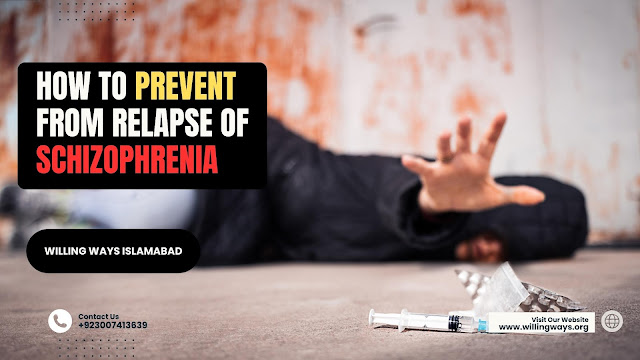I chatted with a psychiatrist once who works in
a prison part time. Telling an addiction specialist at the best addiction treatment center in Islamabad
a story of a patient that he was telling me about people coming into the prison
quite psychotic who would refuse medication. They would improve without
medication, he thought, because of the routine and structure of the prison
environment. The psychiatrist was frustrated because the individuals would say
they didn't need a prescription because they were better. Other people can
deteriorate in prison, get beat up often by other inmates, and have to be put
in solitary for their protection. Getting them out of there can be a real
problem. I'm not recommending prison for its structure, just relaying what one
psychiatrist has observed.
In People with schizophrenia, the positive symptoms which can lead to psychosis and
rehospitalization tend to fade in males after they turn 40. The opposite is
true for women. They tend to have milder schizophrenia for the first ten years
until they enter menopause. Women probably get some relapse protection from the
estrogen level in their blood. Their symptoms can vary with the stage of their
menstrual cycle, and they might not need medication during pregnancy because
their estrogen levels are so high. After delivery of the baby, though, their
estrogen levels drop, and they are at considerable risk of a relapse. With the
medications and treatment strategies they have today, most positive
symptoms can be controlled in most people, provided people take their
medication faithfully, as prescribed.
I asked a psychiatrist once how he achieves
compliance, and he said he involves everyone the individual loves and trusts to
give the same message about the need to take medication. This kind of
"swarming," in combination with the low side effect profile of the atypical,
means noncompliance tends to be much less of a problem. Insight is usually best
with a good response to medication because the individual realizes what they
experienced was very strange. The benefits to an individual taking medication
are an increased quality of life and a decreased probability of relapse. If
that is not their experience, they should be asking for something at a dose
that will improve the quality of their life.
Relapse is a very destructive event to an
individual over the long term. (See Early intervention for more information.)
Theoretical outcomes
The response to medication tends to decrease
with each relapse, and the individual becomes more and more disabled, requiring
more and more support. With each relapse, people lose some of their ability to
care for themselves and enjoy their lives. Insight becomes more difficult, and
compliance becomes a determining issue that leads to more relapses.
My psychiatrist scared me when I first started on medication. He told me if I didn't take it, there was a 90% chance I would relapse and be rehospitalized within a year. It took two or three years before I was convinced I had schizophrenia, and I was willing to take the medication only because it didn't seem to have any effect. Each year the schizophrenia recovery and the quality of work in my life have improved a little on medication, particularly on the atypical Olanzapine. I could always prevent relapse and rehospitalization; now, I rarely experience warning symptoms. I hope everyone else finds that kind of relief from schizophrenia.

Comments
Post a Comment